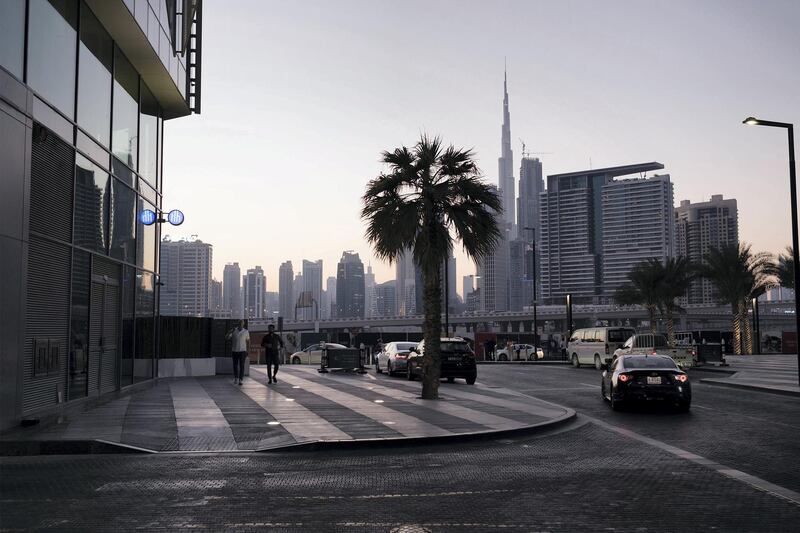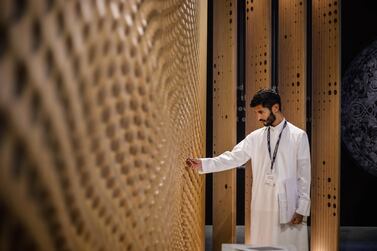Dubai’s first architecture festival is set to launch later this year.
While the event will showcase regional architecture projects, it will also underscore the importance of steering the Middle East towards a more sustainable future.
The inaugural D3 Architecture Festival – established by Dubai Design District in partnership with the Royal Institute of British Architects Gulf Chapter (Riba Gulf Chapter) – is set to run from Wednesday, November 11, to Friday, November 13.
The festival will take place at D3 on the sidelines of Dubai Design Week, an annual event held under the patronage of Sheikha Latifa bint Mohammed bin Rashid Al Maktoum, chair of the Dubai Culture and Arts Authority.
The D3 Architecture Festival will be curated by Juan Roldan, associate professor at the College of Architecture, Art and Design at the American University of Sharjah, and will be held under the theme "Identity, Context and Placemaking in the Gulf".
As part of the event, there will be a series of talks by industry experts on sustainable development. Designers, architects and the general public are also welcome to participate in daily design workshops, known as charrettes.
Al Faya Lodge by Anarchitect (the firm's work will be on show at the festival):
"While offering a platform for critical reflection on social, cultural and economic issues, the event will also provide opportunities for new talent and bring the design community together to champion Dubai and the UAE as a hub for knowledge, creativity and innovation," Khadija Al Bastaki, executive director of D3, said.
“Dubai has long been known as an architectural playground and the emirate’s limitless ambition has found expression in its ever-evolving skyline,” she said, adding: “As we carry on the process of rebuilding in the post-Covid-19 world, our relationship with the built and natural world has never been more important.”
Andy Shaw, chair of the Riba Gulf Chapter, said the exhibition will feature models, drawings and projects from the most exciting architects working in the Gulf, such as Binchy and Binchy and Anarchitect.
“This event is a celebration of what has been achieved by architects in the region and, more importantly, what is to come from the emerging generation of local companies and graduating students.”
British firm Foster + Partners, which made the masterplan for Masdar City in Abu Dhabi, and Zaha Hadid Architects, the studio founded by the late British-Iraqi architect, are also confirmed to participate in the festival.
Anarchitect, which has offices in Dubai and London, and is one of the first Riba chartered practices in the UAE, will be highlighting its Al Faya Desert Retreat project, which involved a redundant grocery store and clinic in Sharjah being transformed into a boutique hotel.
"We will be presenting regional work that demonstrates the great opportunity to regenerate and reprogramme existing buildings into new and contemporary pieces of architecture that bring forgotten places back to life," Jonathan Ashmore, Anarchitect's founder and principal architect tells The National.
"Through a series of drawings, sketches, photographs and models, visitors to the festival will be able to see the transformation and adaptive re-use of the practice’s Al Faya Desert Retreat from a redundant grocery store and clinic into an award-winning and globally published contemporary boutique hotel that draws direct inspiration from the UAE’s natural desert landscape."
Ashmore welcomes the launch of the new festival, and the opportunity it presents to showcase work from across the region. "The breadth of participation is quite wide and will hopefully allow an opportunity to discover common approaches, individual solutions and innovative designs that deal with the here and now, and potentially the future, of the Middle East's contemporary architecture scene.
"I believe it is important to both catalogue and showcase the exciting and progressive work that has been created in the region within a public forum so that a wider audience can hopefully connect and be inspired for future generations to come.
"I hope, moving forward, that this initiative offers a regional platform for a continuous dialogue between architects, clients and governmental bodies not just during the festival, but throughout the year to share knowledge, experience and insight, for the betterment of architecture that is relevant, sustainable and contextually inspired," Ashmore concluded.







